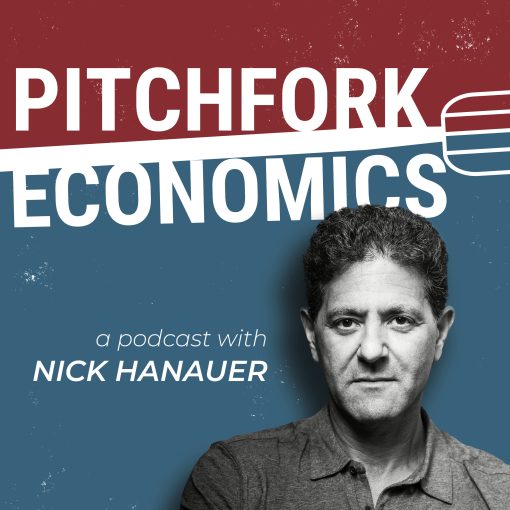Kasyna online nie są już tylko miejscem do gry – stały się społecznościami, w których gracze wymieniają się doświadczeniami, strategią i opiniami. Społeczność graczy Vavada Casino odgrywa kluczową rolę w kształtowaniu tej platformy, wpływając na rozwój jej funkcji, promocji i jakości obsługi. Opinie użytkowników mają bezpośredni wpływ na kierunek, w jakim kasyno się rozwija, dlatego warto przyjrzeć się, jak Vavada angażuje swoich graczy i co wyróżnia tę społeczność.
Rola Społeczności w Nowoczesnym Kasynie Online
Współczesne kasyna online, w tym Vavada, wykorzystują interakcje z graczami do optymalizacji swoich usług. Opinie użytkowników są cennym źródłem informacji na temat oczekiwań, problemów i preferencji graczy. Dzięki temu kasyno może wdrażać zmiany, które odpowiadają na realne potrzeby użytkowników.
Jednym z głównych kanałów, w których gracze dzielą się swoimi doświadczeniami, są fora internetowe, recenzje na stronach hazardowych oraz media społecznościowe. Wielu użytkowników aktywnie recenzuje https://vavada.net.pl/, zwracając uwagę na zalety, takie jak szeroki wybór gier, szybkie wypłaty i atrakcyjne turnieje. Jednocześnie zgłaszane są sugestie dotyczące ulepszeń, co pomaga operatorowi w ciągłym doskonaleniu platformy.

Najważniejsze Opinie Graczy o Vavada
Gracze Vavada.net.pl chwalą przede wszystkim:
- Dużą różnorodność gier – ponad 2000 tytułów, w tym sloty, gry stołowe i kasyno na żywo.
- Szybkie wypłaty – czas przetwarzania transakcji wynosi często mniej niż 24 godziny.
- Program VIP – atrakcyjne nagrody i ekskluzywne bonusy dla lojalnych graczy.
- Regularne turnieje – codzienne i tygodniowe wydarzenia z wysokimi pulami nagród.
- Wsparcie kryptowalut – możliwość wpłat i wypłat w Bitcoin, Ethereum i innych cyfrowych walutach.
Jednocześnie gracze sugerują, że Vavada mogłaby:
- Rozszerzyć opcje samowykluczenia dla lepszej ochrony odpowiedzialnego hazardu.
- Ulepszyć interfejs mobilny, aby jeszcze lepiej działał na różnych urządzeniach.
- Wprowadzić dodatkowe metody płatności dla użytkowników z Europy.
Wpływ Społeczności na Rozwój Kasyna
Opinie graczy nie są ignorowane – Vavada regularnie aktualizuje swoją ofertę, dostosowując ją do potrzeb użytkowników. Przykłady zmian wprowadzonych na podstawie opinii społeczności to:
- Nowe gry – dodawanie tytułów zgodnych z preferencjami graczy.
- Poprawione wsparcie techniczne – szybsza obsługa zgłoszeń i lepsza dostępność czatu na żywo.
- Więcej turniejów – zwiększona liczba wydarzeń z wysokimi nagrodami.
- Lepsze warunki bonusów – obniżenie wymagań dotyczących obrotu środkami promocyjnymi.
Jak Vavada Buduje Zaangażowanie Graczy?
Kasyno stosuje różne metody, aby angażować swoich graczy i utrzymać ich lojalność:
1. Media społecznościowe i fora
Vavada aktywnie działa na platformach społecznościowych, takich jak Telegram i Twitter, gdzie informuje o promocjach i nowych funkcjach. Użytkownicy mogą tam także zadawać pytania i dzielić się swoimi opiniami.
2. Program lojalnościowy
Gracze, którzy regularnie grają w Vavada, mogą zdobywać punkty lojalnościowe wymieniane na nagrody, cashback i ekskluzywne bonusy.
3. Streamerzy i influencerzy
Kasyno współpracuje z popularnymi streamerami, którzy promują gry na żywo, prezentując wygrane i strategie gry.
4. Testowanie nowych funkcji
Wybrani użytkownicy mogą brać udział w beta-testach nowych gier i funkcji kasyna, co pozwala im wpływać na finalny wygląd platformy.
Optymalizacja Treści dla Wyszukiwania Głosowego
Wraz z rozwojem technologii wyszukiwania głosowego coraz więcej użytkowników korzysta z asystentów AI, takich jak Google Assistant i Siri, aby znaleźć informacje o kasynach online. Optymalizacja treści pod kątem wyszukiwania głosowego może pomóc Vavada dotrzeć do większej liczby potencjalnych graczy.
Jak dostosować treści do wyszukiwania głosowego?
- Stosowanie naturalnego języka – użytkownicy wyszukiwania głosowego zadają pytania w sposób konwersacyjny, np. „Jakie bonusy oferuje Vavada?”
- Odpowiedzi w formie pytań i odpowiedzi – warto stosować sekcje typu FAQ, które ułatwiają uzyskanie precyzyjnych odpowiedzi.
- Krótsze akapity i klarowna struktura – tekst powinien być łatwy do przetwarzania przez algorytmy Google.
- Używanie długiego ogona słów kluczowych (long-tail keywords) – frazy bardziej opisowe zwiększają szanse na wyświetlenie w wynikach wyszukiwania głosowego.
Podsumowanie – Społeczność Jako Filar Sukcesu Vavada
Vavada Casino nieustannie rozwija się dzięki zaangażowanej społeczności graczy. Opinie użytkowników mają ogromny wpływ na decyzje dotyczące dodawania nowych gier, ulepszania funkcji platformy i optymalizacji warunków bonusowych. Dzięki otwartej komunikacji kasyno może stale dostosowywać swoją ofertę do oczekiwań rynku.
A jakie są Twoje doświadczenia z Vavada? Czy masz sugestie, jak kasyno mogłoby jeszcze bardziej ulepszyć swoje usługi? Podziel się swoją opinią w komentarzach!





